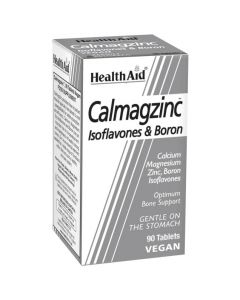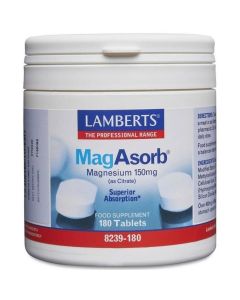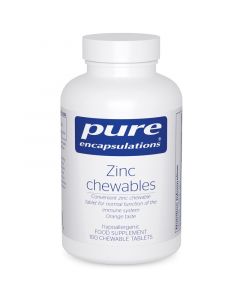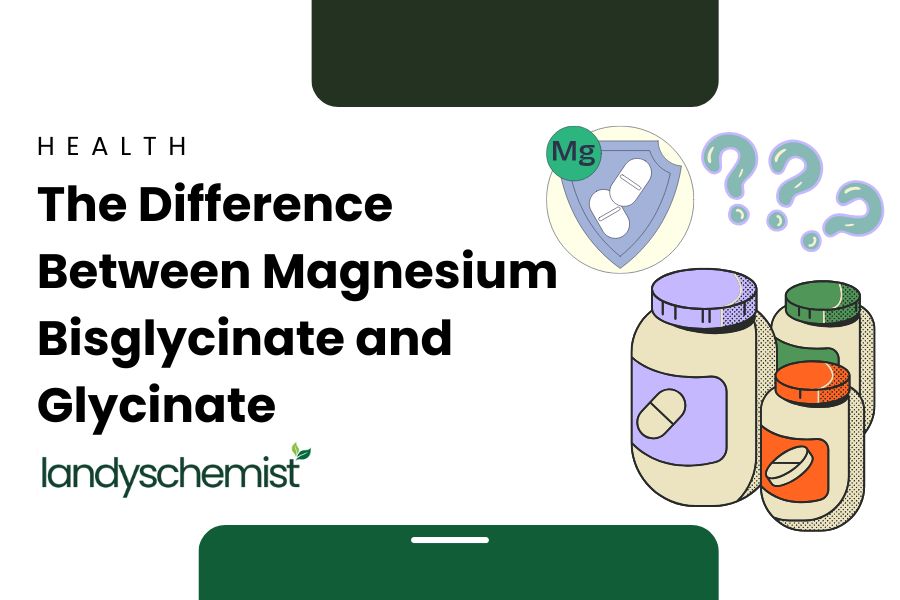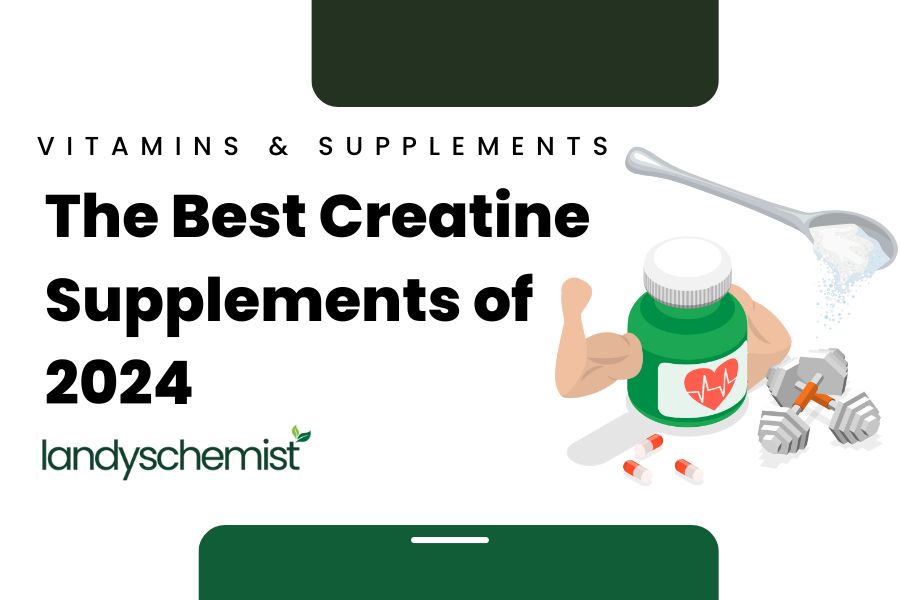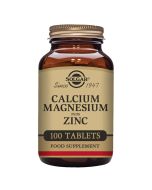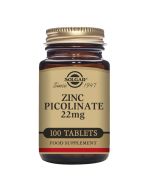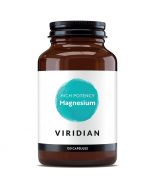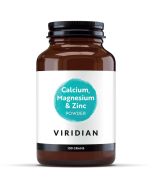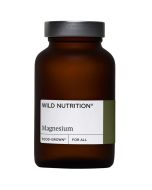
The Benefits of Zinc and Magnesium
Both magnesium and zinc can provide a multitude of benefits for the body, from supporting bone health to immunity, controlling our blood sugar levels, and supporting the functioning of our nervous system.
But did you know that these can also be taken together? These two essential nutrients work synergistically in the body and can help to regulate levels of zinc within the body (as long as zinc consumption is not excessive).
In this blog, we explore what both magnesium and zinc can be good for in our body, their benefits and how to take zinc and magnesium together to provide maximum benefits for you and your health.
What does zinc and magnesium do for the body?
Zinc and magnesium are both classed as essential to our body. This means that our body can’t synthesise them, and so these minerals must be supplemented or obtained from foods. Essential nutrients are necessary to promote healthy growth and bone health and bodily functions like our metabolism.
What is Zinc?
Zinc is called a trace mineral and micronutrient. This essentially means that only a small quantity of zinc is present in tissues and required for proper functioning and development. Even though only a little amount is required, they are essential for our body.
Zinc is the second most abundant trace mineral within our body. It is involved in over 300 different enzymatic reactions, from metabolism, growth, digestion, hormone production and immune cell development to cognitive function. Zinc also has anti-inflammatory and antioxidant properties, allowing it to play a key role in supporting our immune system and healing wounds.
Some can become deficient in zinc if they are not obtaining enough through supplementation or food. Common symptoms of zinc deficiency include hair loss, weight loss, impacts on our emotions and mood as well as delayed healing of wounds.
What is Magnesium?
Magnesium is the fourth most abundant mineral within our body, necessary for regulating numerous chemical reactions, blood sugar and blood pressure levels as well as nerve functioning. Many of us actually do not receive adequate levels of magnesium as our body is not absorbing enough magnesium and this can result in being magnesium deficient.
Magnesium deficiency can cause you to feel more tired, lack energy, experience irregular heartbeats and high blood pressure and it can cause twitches or muscle cramps.
Magnesium helps to relax the muscles and blood vessels, allowing blood to be pumped regularly and maintain healthy blood pressure. This mineral can also help with energy production, supporting cognitive function and mood and can help with inflammation through the reduction of markers like interleukin 6.
What is the benefit of taking zinc and magnesium together?
So why is magnesium and zinc good for you?
Supplementing magnesium and zinc together in the correct amounts can help contribute to a healthy body as they can work synergistically together. Magnesium is often used to help the body to regulate levels of zinc. These complementary supplements can help improve the bioavailability of these essential nutrients, helping the body to utilise these minerals and provide optimal benefits.
Combining magnesium with zinc can help support our bodily enzymatic reactions, aid our sleep, keep our immune system functioning properly and efficiently, and protect and support our bone health. As these minerals can work synergistically within our bodies, it means that they do not inhibit absorption of magnesium or zinc in the body (when taken in correct dosages). Taking both minerals together can provide a convenient way to provide the healthy dosages required by our body.
What are the key benefits of zinc and magnesium?
Magnesium and Zinc can provide many benefits to the body. These can include:
Supporting Bone Health and Development
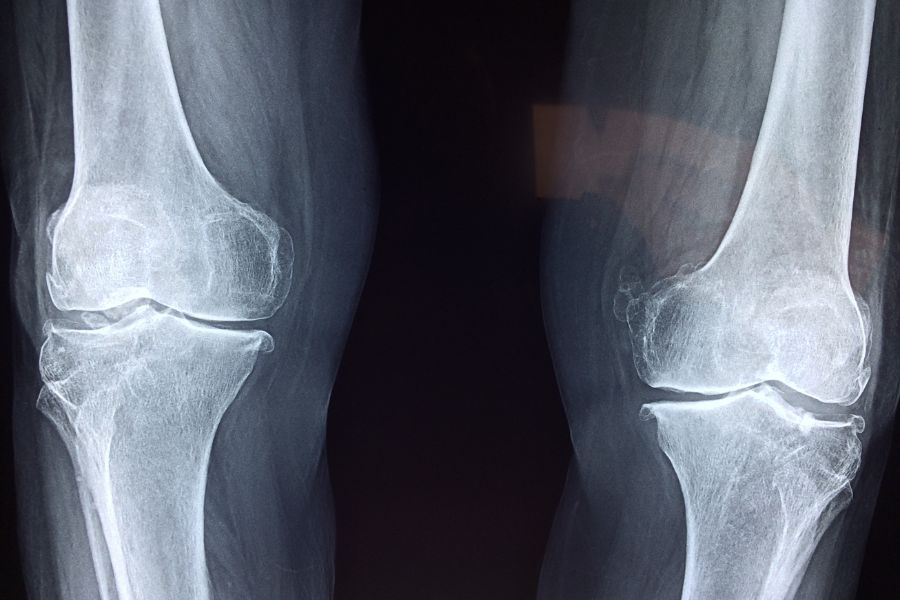
Magnesium is a mineral which may be able to help reduce the risk of bone fractures and osteoporosis by supporting bone mineral density. Magnesium is involved in the mineralisation of bones, helping to promote bone stabilisation. It does this through the regulation of osteoblasts and osteoclasts, as well as facilitating calcium absorption.
Zinc has also been shown to have effects on mineralisation of bones as well as osteoblastic bone formation. By helping to promote bone regeneration, zinc can help with optimal functioning of bone cells and bone density.
Together, magnesium and zinc can help with bone development through their involvement in processes like mineralisation, collagen synthesis and regulating enzymatic reactions.
Repairing the skin and wounds

Magnesium helps in the repairing of skin and wounds as it contains anti-inflammatory properties. Inflammation can impede the wound healing process. Magnesium is also involved in cellular energy production, to generate ATP. This is essential for cellular proliferation and migration which is involved in the wound healing process.
Zinc is involved in collagen synthesis which is a component of the extracellular matric of the skin. This helps to contribute to the structure and strength of the skin tissue. Zinc is also used for cellular division and proliferation which is required during wound healing. Acting as an antioxidant can help to protect the cells from oxidative stress which can impair the wound healing process. Antioxidants neutralise free radicals which are generated during the inflammatory phase of wound healing. Zinc helps to support a healthy immune system which can protect the body from infection.
Together, magnesium and zinc play critical roles in wound healing and skin health through reducing inflammation, supporting cell proliferation, and supporting our immune system.
Boosting the immune system
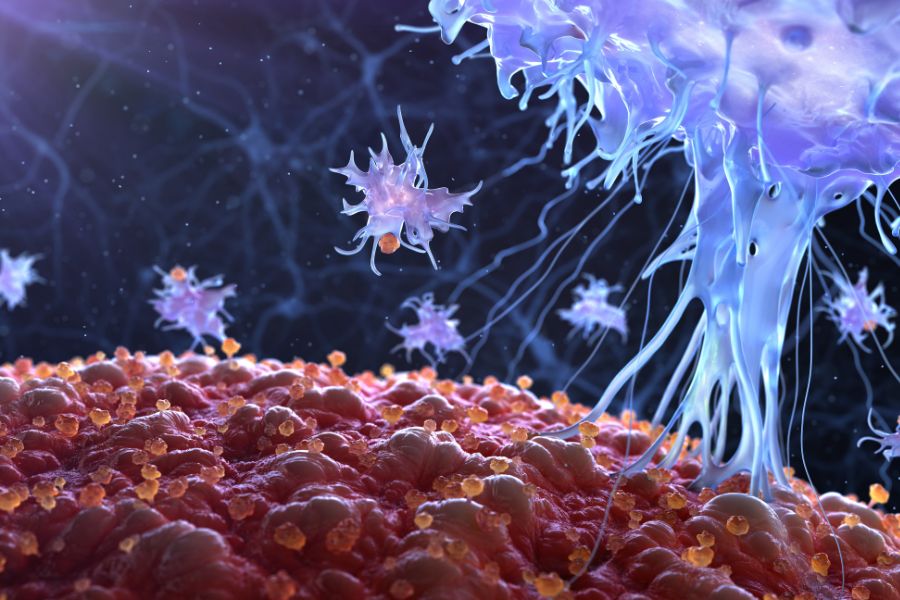
Magnesium is a mineral which helps promote healthy immune function and reduce inflammation. Studies have shown that those with higher levels of magnesium intake had lower serum levels of inflammatory biomarkers. This shows that those who have a higher dietary intake of magnesium experienced less severe symptoms. It is also important to note that magnesium is actually important for the activation of vitamin D. Whilst it is well-known how vitamin D can support the immune system, and can help to reduce the risk of acute respiratory infections, magnesium is also important. Magnesium deficiency can cause a depressed immune response.
Zinc is a nutrient that has numerous roles within the immune system. Studies have shown that those deficient in zinc can experience impaired wound healing and immunological function. Its involvement in cell growth and development means that zinc has a crucial role in the proliferation and differentiation of immune cells. It is important to ensure that the body has adequate levels of zinc to ensure that cell signalling is not impaired and to allow for the immune response to not be compromised.
Together, magnesium and zinc play essential parts in ensuring that correct cell proliferation and differentiation occurs, inflammation is reduced, and proper cell signalling can take place so that the immune response is not compromised when the body is exposed to an infection or foreign substance.
Improving sleep quality

Some studies have shown that magnesium may be able to help regulate melatonin levels and reduce anxiety levels. Melatonin is a hormone that helps to regulate the body’s sleep-wake cycle which allows the body to rest and repair itself. Magnesium is also involved in the regulation of the neurotransmitter GABA or gamma aminobutyric acid. This neurotransmitter may be beneficial for sleep quality through helping relax the nervous system, having a calming effect on the body.
There have been several scientific studies which have shown that when supplemented with zinc, the time taken to fall asleep as improved, as well as the quality. This may be because zinc has a role in the sleep wake cycle, and interact with GABA receptors which can help promote sleep.
Together, magnesium and zinc have important roles in helping to relax the body’s nervous system, reduce cortisol levels and help improve quality of sleep through the regulation of neurotransmitters like GABA and hormones like melatonin.
When to take zinc and magnesium:
Zinc and magnesium supplements can be taken at any time of the day but can be taken in the evening to support sleep quality.
Some may experience gastrointestinal upset when taking zinc on an empty stomach, so it is important to listen to your body, and speak to a medical professional if you experience any trouble or are unsure.
How much zinc and magnesium should you take?
It is important to ensure that you are taking the correct dosages of each mineral to prevent negative effects. Too much zinc can inhibit the amount of magnesium you absorb, affecting magnesium levels within our body in a negative way.
The recommended amount of zinc required is 9.5mg a day for men who are aged between 19 and 64 years, and for women is 7mg a day.
The recommended dosage of magnesium is 300mg per day for men (19-64 years), and 270mg a day for women who are between the ages of 19 and 64.
Zinc and Magnesium Product Recommendations:
Theses HealthAid tablets are suitable for vegans and vegetarians and help to provide that boost of energy whilst supporting the health of our bones. These Calmagzinc tablets provide three essential minerals, calcium, magnesium, and zinc for increased absorption in our body. These tablets are enriched with soy isoflavones and boron to help with the maintenance of healthy bones and immune function.
The Lamberts MagAsorb Tablets provide 150mg of magnesium per tablet in a highly bioavailable citrate form. These tablets help maintain normal bone health and functioning of the nervous system as well as reducing levels of fatigue. Take 1-3 tablets daily to help provide healthy levels of magnesium to the body. These tablets are suitable for vegetarians and vegans too!
Pure Encapsulations Zinc Chewable Tablets help to provide levels of zinc with a convenient orange flavoured chewable tablet. Zinc is important for normal cognitive function, DNA synthesis and the maintenance of normal hair, skin, and nails. Take 1 tablet 1-2 times daily or as directed by your healthcare professional.
Summary:
- Zinc and magnesium are both essential minerals for the body, supporting bodily functions like growth, bone health and metabolism. However, this means that they must be obtained through supplementation or diet.
- Zinc is a trace mineral which is involved in over 300 enzymatic reactions, supporting metabolism, immune function, wound healing and growth and development.
- Magnesium, the fourth most abundant mineral regulates chemical reactions, blood sugar, blood pressure and also contributes to nerve and muscle function.
- Synergistic supplementation of magnesium with zinc enhances bioavailability, supporting enzymatic reactions in the body, boosting immune function, and helping improve sleep quality.
Disclaimer
The products offered are not intended to diagnose, treat, cure, or prevent any illness or disease, or to replace the advice of a medical professional. Results are not guaranteed and may vary from individual to individual.
By Saarah Mengrani, MSc Biotechnology

